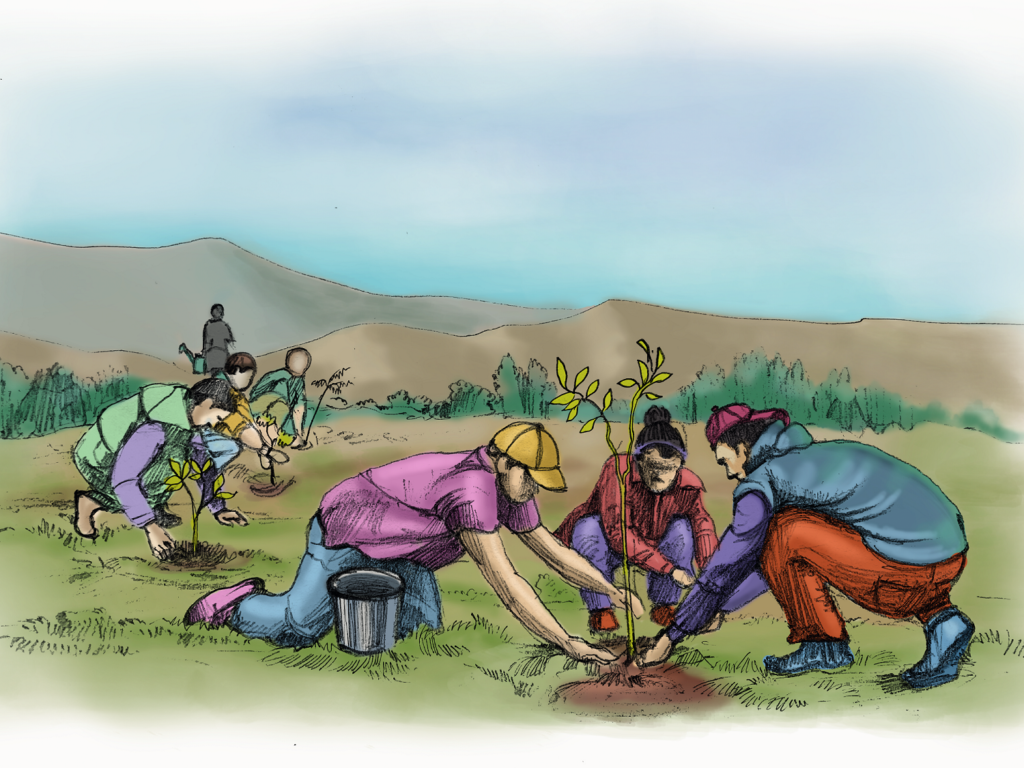
UKALI collaborates with various local partners such as Rural Municipalities/Ward Offices, Division Forest Office, Police, Local Conservation Committees, Youth Clubs, Women’s Groups, Community Forests, School Eco-clubs, Herders and Citizen Scientist in reducing direct threats to biodiversity, wildlife and their habitat through sensitization and law enforcement. We carry out collaborative conservation actions by patrolling and monitoring illegal activities such as snaring, hunting, forest fire and destructive harvesting of forest products, such as fuel wood, timber, NTFPs etc. Additionally, UKALI works closely with local communities to mitigate human-wildlife conflict over issues such as livestock depredation, human injuries, and crop damage.
The Upper Karnali Landscape is the largest continuous non-protected area in Nepal, covering an area of about 6000 sq. km. It is remote and rich in biodiversity, providing an important basis for the rural economy. Agriculture is subsistence-based and supported by livestock husbandry since only 1% of the total land is suitable for farming. As a result, local communities are highly dependent on biodiversity for their livelihoods and income generation.